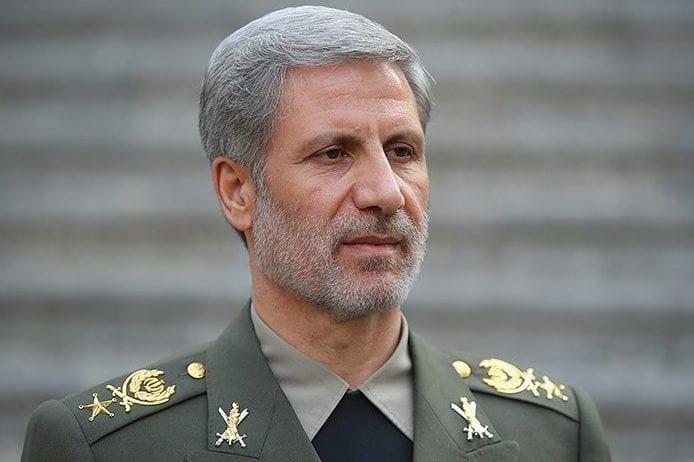In a significant display of geopolitical alignment, China recently hosted a meeting between the defense ministers of Iran and Russia, underscoring the shifting dynamics in international relations amid what analysts describe as a period of ‘momentous change.’ The gathering took place as global tensions escalate, particularly in light of ongoing conflicts and strategic realignments. This trilateral engagement not only highlights China’s growing role as a mediator and power broker on the world stage but also reflects the strengthening ties among nations facing common challenges. As Iran and Russia seek to bolster their defense cooperation, the implications of this partnership could reverberate across the broader geopolitical landscape, prompting a closer examination of alliances and rivalries in the contemporary arena.
China Facilitates Key Defense Talks Amid Global Shifts
In a significant move that highlights shifting global power dynamics, China has facilitated crucial discussions among the defense ministers of Iran and Russia. This trilateral meeting comes at a time when international relations are increasingly influenced by multilateral collaborations, particularly in the face of increasing Western sanctions and geopolitical tensions. As nations reassess their strategic partnerships, this gathering underscores a collective approach towards mutual security interests in a rapidly evolving global landscape.
The ministers focused on several key areas, including:
- Military Cooperation: Strengthening defense ties to counterbalance Western influence.
- Joint Exercises: Planning future military drills to enhance operational capabilities.
- Security Alliances: Exploring frameworks for deeper collaboration in regional conflicts.
This meeting symbolizes not only the deepening ties between China, Iran, and Russia but also sets the stage for new defense strategies that could redefine regional balances of power amidst what many are calling “momentous change.”
Implications of Sino-Iranian-Russian Cooperation on Regional Security
The recent meeting of the defense ministers from China, Iran, and Russia marks a significant shift in regional dynamics and raises critical questions about security cooperation among these nations. This collaboration is seen as a counterbalance to Western influence in the region, especially given the increasing military cooperation and intelligence sharing. The growing alignment among these three countries could result in several implications for regional security including:
- Increased Military Collaboration: Joint exercises and defense initiatives may enhance operational capabilities and create a more cohesive military front.
- Arms Supply Enhancements: The potential for increased arms trades could destabilize existing power balances, particularly in areas where hostilities have been prevalent.
- Geopolitical Alliances: Strengthened ties among these states may encourage other regional actors to realign their own foreign policies, prompting a ripple effect across the Middle East and Central Asia.
Furthermore, the implications extend beyond military dimensions and may involve economic partnerships that bolster energy cooperation and trade. The collaboration may lead to the formation of multilateral institutes aimed at addressing shared interests, thereby elevating the status of these nations on the global stage. Consider the following factors:
| Factor | Potential Impact |
|---|---|
| Energy Collaboration | Higher energy exports and protracted sanctions against Western nations. |
| Intelligence Sharing | Enhanced counter-terrorism capabilities and drug trafficking management. |
| Regional Influence | Increased leverage in negotiations related to conflicts such as Syria and Afghanistan. |
Strategies for Navigating the Evolving Geopolitical Landscape
In a world characterized by rapid and unpredictable changes in power dynamics, nations must adopt multifaceted strategies to ensure their security and influence. The recent gathering of the Iranian and Russian defense ministers in China underscores the importance of diplomatic engagement and military cooperation as tools for navigating the complexities of the geopolitical environment. Countries should consider bolstering alliances with regional powers, fostering collaboration on intelligence sharing, and conducting joint military exercises to deter potential threats and foster trust. Additionally, leveraging economic ties can serve as a strategic counterbalance to Western influence, enhancing a nation’s position in an increasingly multipolar world.
Moreover, nations need to stay agile by investing in cybersecurity and information warfare, recognizing that modern conflicts transcend traditional military confrontations. Establishing strong narratives through social media and other digital platforms can shape public perception and counter adversarial propaganda. A key component of this approach is engaging with non-state actors who can amplify a nation’s strategic messaging and broaden its influence across varied regions. By understanding these emerging trends and applying innovative tactics, countries can better navigate the evolving landscape and position themselves advantageously amidst consequential global transformations.
In Retrospect
In conclusion, the recent meeting of defense ministers from China, Iran, and Russia underscores a significant shift in international relations and military alliances. Set against a backdrop of geopolitical tensions and evolving global dynamics, this trilateral dialogue marks a pivotal moment in the alignment of interests among these nations. As they navigate a complex landscape characterized by shifting power balances and growing confrontations with Western states, the outcomes of such meetings will undoubtedly influence security strategies and diplomatic efforts in the years to come. Observers will be closely monitoring how these developments unfold, particularly in light of the United States’ ongoing efforts to counterbalance the increasing cooperation between these nations. As the world stands on the precipice of what many are calling ‘momentous change’, the implications of this gathering extend far beyond regional borders, potentially reshaping the strategic landscape on a global scale.
